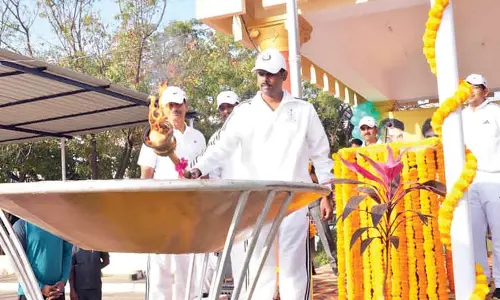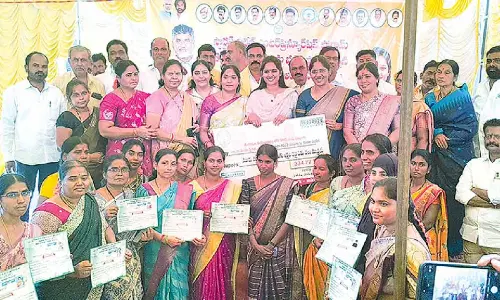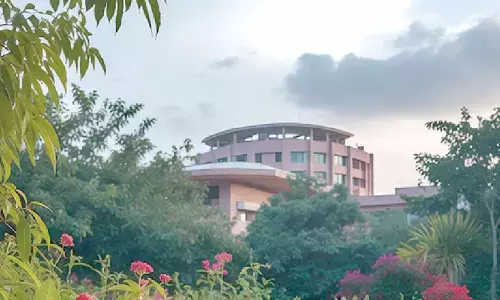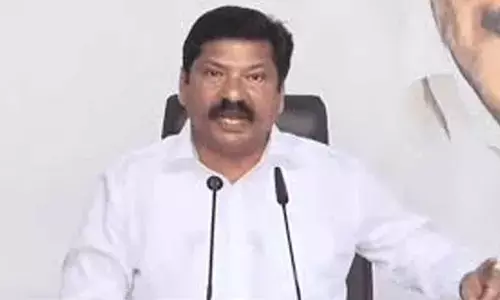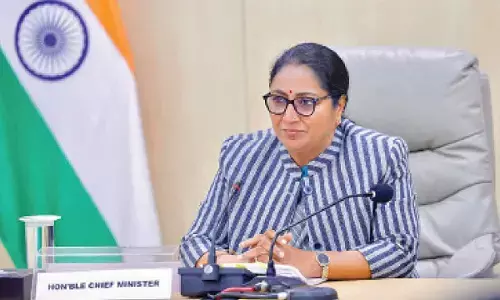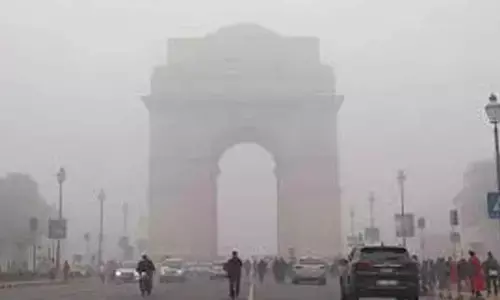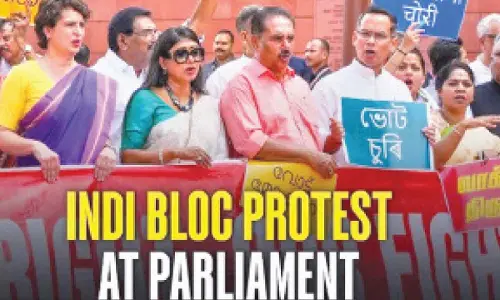MyVoice: Views of our readers 27th April 2025

MyVoice: Views of our readers 19th January 2026
The merciless massacre of 26 innocent tourists in Pahalgam have plunged India-Pakistan relations to an all-time low.
Pahalgam terror attack: War is not an option
The merciless massacre of 26 innocent tourists in Pahalgam have plunged India-Pakistan relations to an all-time low. India suspended the 1960 treaty governing the use of six rivers that flow through the (geographically proximate) neighbouring countries. Pakistan has termed it an ‘act of war’ as the river system is vitally important for its agriculture and of existential importance. On its part, Pakistan threatened to suspend the 1972 Shimla agreement sanctifying the demarcation LoC, suspended trade with India, and closed its airspace to Indian carriers.
These moves are a clear indication of a serious deterioration in relations between the two countries, bordering a rupture in the relations. The massacre, carried out by men destitute of ordinary human feelings and capable of unfathomable evil, was an act of appalling cruelty and a crime against humanity. Understandably, it sparked widespread outrage throughout the length and breadth of the country.
Palpable were India’s anger and anguish. The dastardly attack was carried out just days after Pakistan army chief Asim Munir’s description of Kashmir as Pakistan’s “jugular vein” and differentiation of Hindus and Muslims as two distinct peoples and his validation of the two-nation theory. It is not clear what Pakistan stands to gain from sponsoring terrible atrocities in India while it is battling extremism on its own soil and its economy is in a very bad shape. The comparison with Hamas’ attack would bracket India with Israel, with which we simply don’t agree.
The Pahalgam tragedy should not be framed in a communal binary and it should not be politicised in the hope that it will pay electoral dividends. It is now a highly volatile situation from which a war might develop. Leaderships in both the countries should show enough statesmanship and sagacity to make efforts to defuse tension.
G. David Milton Maruthancode, Tamil Nadu
***
Prime Minister Narendra Modi’s stern warning to Pakistan, and its terror promotion in J&K assumed a new resolve and determination in the light of Pahalgam terror attack on innocent tourists from various parts of the country who had come to Pahalgam to admire the scenic beauty of the place. The countrywide anger is evident; and the people want a befitting and resounding action against Pakistan as numerous diplomatic moves have already been announced that has rattled Pakistan – particularly, the Indus Water Treaty, signed in 1960 to be put on hold, that was aggressively loaded in favour of Pakistan to the tune of 80:20.
The sleeper cells and local support for jihadis from Pakistan are being looked into, and more than 2000 individuals are taken into custody for questioning. Let us hope the country will witness an end to scourge Islamic terror in Kashmir and other parts of the country. India is a responsible and democratic country, not to behave like Pakistan, recklessly in the face of Pahalgam mass massacre of tourists visiting the scenic beauty of Kashmir. There have been umpteen unprovoked attacks by Pak proxies against Indian pilgrims and military personnel in the Kashmir Valley, and befitting replies were delivered by India; but the Pakistan government under the control of the Pak military and the ISI is yet to learn the lesson.
But, this time around, India began with solid diplomatic measures to tame Pakistan by way of reducing the strength of the Pakistan High Commission from the present 55 to 30 – declaring five military men in the High Commission persona non grata to leave the country; cancelling the issue of visas for Pakistanis. Pakistan is already spooked by these diplomatic moves by India; and that country must wait for the retribution by India for the death of 28 innocent Indian civilians killed in cold blood by the jihadi radical elements supported by Pakistan.
S Lakshmi, Hyderabad
***
India should not be content with the initial slew of measures it has taken against Pakistan. We must leverage our strong Tites with countries like Saudi Arabia to isolate Pakistan. The unprecedented public outrage in Kashmir against the attack has significantly damaged Pakistan's narrative. This terrorist attack in Pahalgam should be the last one and India should go in boldly for the following measures against Pakistan.
1. Close Indian Embassy in Pakistan and demolish their embassy in India and no diplomacy between the two countries.
2. No Pakistani visitors, actors, artists etc., should be allowed in India though artists promote peace and not hatred.
3. No cricket and other games with Pakistan. How can you play cricket or hockey with the country which creates hatred between Hindus and Muslims?
4. Since the whole world is with India, it is the best time to promote Pakistan as a terrorist state in the world.
5. It is unprecedented that the entire population of Jammu and Kashmir is against the terrorist attack and is with India. No Pakistani flags or pro-Pakistan slogans in the valley. Strike the iron when it is hot. Kashmiris should drive away all anti-social elements from the valley and all the hostile neighbours.
6. It is a war against terrorism and not between Hindus and Muslims. The enemy country wanted to create a wedge between the two communities in India.
7. India should ban all trade with Pakistan.
8. All the borders should be closed for good as if Pakistan never existed.
9. Enough is enough. India can't tolerate any more cross border terrorism.
10. The entire nation is one against terrorism and looking forward to wipe it out for ever because it brings only destruction, death and division among communities. It is better amputated if a part of the body develops gangrene
S M Hussain, Kadapa, AP
***
Pakistan's response to the Pahalgam terror attack has been insensitive, churlish and framed in a manner detrimental to the region's stability, particularly of its own people and economy. India has so far restrained itself from military action but has sent a clear message to Islamabad and Rawalpindi that Pakistan should not expect a free run while nurturing terrorism.
The decision to suspend the Indus Waters Treaty (IWT), along with a slew of diplomatic actions, is a clear signal to Pakistan that India can hit where it hurts.
In today's world, where India is seen as an economic power and a leader of the Global South, Pakistan, despite its nuclear weapons, is deemed inconsequential, except for its potential to disrupt through its terror assets. Does Pakistan expect that war with India, with a nuclear backdrop, will draw international attention?
The Pakistani establishment believes that by engaging in brinkmanship, it can rally the nation around its cause. Its refusal to see Kashmir as a closed chapter and the thinking that it can use terror to dictate terms to India flows from a flawed understanding of contemporary history and geography. Pakistan should know its future lies in finding ways to co-exist with India, considering its historical legacy and geography - its reliance on rivers that originate in India exemplifies this dependence. The Prime Minister has emphatically said India will not let the Pahalgam pain pass. Now, India must choose the targets and the path carefully, while firewalling its citizens from the consequences.
N Sadhasiva Reddy, Gnanabharathi, Bengaluru
***
The Pahalgam incident of killing 28 tourists from different parts of the country stirred the global conscience that stood against Pakistan in one voice in condemnation. India’s reaction to this barbaric crime by Islamists who segregated the Hindu tourists and shot them in the head was nothing short of what the Hamas terrorists had done against the unwary Israelis that led to prolonged and unrelenting action by Israel against Hamas and other terror groups who came in support of them from different parts, and under different names.
The unmissable thing that the growing presence and unmissable role of Hamas in Pakistan to assist the jihadists is on the increase, the local groups like LeT, JeM and others have met at PoK in which Hamas leaders gave lengthy speeches against India, to legitimise their role in killing non-muslims throughout the world. It is interesting that in Bangladesh too, the Yunus leadership is cozying up to LeT and Hamas which is dangerous about which India has warned the Bangladesh government such activities in India’s neighbourhood cannot be tolerated.
The remarkable move by the government in the wake of Pahalgam tragedy is to identify the over ground workers and sleeper cells of LeT and other Pak sponsored jihadist elements who remained dormant in the light of abrogation of Article 370 in J&K who were the paid stone pelters against the security forces; and around 2000 individuals have been rounded up for questioning; and the houses of the established radical who went to Pakistan for arms training to be part of LeT have been dynamited. This must send a clear message to fence sitters in the Kashmir Valley to choose between democracy and Islamic jihad. Still there are elements in Kashmir, like Mehbooba Mufti who refused to call out Pakistan for its role in the recent attack, when a reporter repeatedly asked her why she was no condemning the Pak sponsored Pahalgam killings – her reply to this was not only funny, but typical of what the Hurriyat Conference and PDP were propagating against the Indian state.
There is however a visible change in the attitude of Kashmiris who took out a protest march against the recent killings. But one feels that such gestures must not be symbolic but sincere in the long term for merely not paving the way for tourists visiting the Kashmir Valley to promote the commercial and business interests of the local population that survives on visitors from different parts of the country to enjoy the scenic beauty of the Kashmir Valley.
K V Raghuram Wayanad
***
Pahalgam attack should be utterly condemned. Terrorists have no religion; terrorism has become a different religion. And whoever supports this attack he should be arrested. But there are some media that are spreading some bad news. There are a lot of differences between media reports and the version of persons those who were there in pahalgam.
Don't try to divide Indian citizens. Everyone expects the media to provide us with genuine news. Media is a good job when you do it the right way. So let's stand against people who spreads bad news and defames any particular religion.
Omar Faruque, Mondal Goalpara, Assam
***
Islam is a religion of peace, love and kindness. It teaches people to live in harmony and respect others no matter their religion or background. Many people wrongly connect Islam with terrorism but it is not true. lslam does not support violence or killing of innocent people, because the Quran clearly says "IF anyone kills a person, it is as if he has killed all of mankind"(5:32).
This shows how serious the crime of killing is in Islam. Terrorist group who claim to be Muslim are actually going against the teachings of Islam. They do not represent any religion. It is also important to understand that terrorism has no religion. People from different religions and countries have committed acts of terrorism. So blaming one religion for terrorism is not fair.
Salman Shabab, MMERC Mumbai
Tributes to an extraordinary Pope
Pope Francis said that Christ’s admonition, “What you did to the least of these my brethren, that you did to me,” invites Christians to recognise the image of God in every man and woman, who are called to be “brothers and sisters” in the human family, and children of God. Born Jorge Mario Bergoglio, the first Latin American leader of the Roman Catholic Church, Pope Francis died on Easter Monday, 21 April 2025. He was 88.
In Italy, they call him il Papa, which means The Father. Until his unprecedented election, author and friend Elisabetta Piqué called him Padre Jorge. He may have changed his name to become Pope Francis, but it did not change their friendship.
Since Jorge Mario Bergoglio became Pope Francis in 2013, countless books have been written to help the world understand this deeply complex yet simple servant of God. What sets Pope Francis: Life and Revolution apart from all other biographies of Pope Francis is the careful research and original investigation behind it, along with the fact that it is written by an internationally respected journalist—Elisabetta Piqué—who has remained close to the Pope since first meeting him back in 2001. Over 75 individuals were interviewed for Pope Francis: Life and Revolution, including lay people, priests, bishops, and cardinals who have known or worked with Francis at various times in his life. Insights from these people, as well as from friends and family members, allow us to see a profoundly personal side of the Pope. His humility and humanity, courage and conviction, and warmth and wisdom are revealed as Piqué shares little-known episodes from Francis’s life. Pope Francis: Life and Revolution is the definitive resource and narrative of a man personally known by few and revered and respected by many. The book is available in Spanish as well.
C.K. Subramaniam, Navi Mumbai
***
The world has bid a tearful farewell to Pope Francis. President of India Draupadi Murmu was among over a hundred heads of states and governments who attended the funeral. As many as 2,50000 people attended the funeral service. The funeral mass was telecast live, perhaps with the viewership exceeding that of World Cup Football matches. Pope Francis was a great fan of football. As wished by him, he was buried in a simple tomb in the ground at Basilica di Santa Maria Maggiore outside Vatican, a place ‘less glamourous’ than St. Peters’ Basilica. Spontaneous outpourings of praise for him and thousands pouring into the Peter’s Square to catch a glimpse of him as church bells tolled showed how much he was loved and respected across the world. Sometimes referred to as an “outsider” for deviating from traditional papacy, the 266th Pope and first non-European Pope in 1300 years ‘demystified’ papacy, made it less awesome and made it more accessible and connected to people. He wanted the church to be open to all - all-embracing and all-inclusive. For him, the papacy was a calling to lead the faithful in the path shown by Christ and not a seat of power to lord over them. He spurned the trappings of power and wealth. Pope Francis’ was a hugely impactful papacy. His down-to-earth approach and his simple lifestyle endeared him to everyone. For the ‘profoundly consequential’ changes he brought about in the church during his 12-year pontificate, he was hailed as a ‘modernizer’ and a ‘reformer’. He worked for “peace in the world” and “fraternity among peoples”, to use his phrases. He built bridges and not walls and strove for an improvement in Christian-Muslims relations. His As-Salamu Alaikum resonated across the world. As part of the “good fight”, he sparred with US President Donald Trump on immigration and climate change. He had socialist leanings and raised his voice for more economic equality. He described capital punishment ‘inadmissible’.
A people’s Pope, he enjoyed being with people sporting a warm smile full of grace and exuding hope and confidence, mingling with them, hugging them, blessing them and comforting them. He was outspoken about the plight of the poor. True to the teachings of Christ, he reached out to the poor, the marginalized, the fragile and the vulnerable. He cared for migrants, refugees, prisoners, homosexuals, victims of abuse and divorcees. He apologized for the sexual abuse of children by priests and Bishops. His pontificate cannot be thought of without thinking of the human touch and the freewheeling spirit he brought to it.
Pope Francis embodied humanity and the essential goodness of human nature in abundant measure, that people cutting across religious and national boundaries related to him and looked up to him. He did whatever he could to bridge divides and unite the world. He endeared himself to people by his humility, his sense of wonder and his sense of humour. He prescribed self-mockery as an antidote to narcissism.
Pope Francis tried to shake things up in the church for it to move with the times and apply the gospel to today’s world. He translated the Sermon on the Mount into a life lived by him. Like his famous namesake (the simple monk St. Francis of Assisi), he lived an entirely virtuous and saintly life. On what the church has traditionally thought ‘unacceptable’, Pope Francis asked “Who am I to judge?”. The church under his successor should carry on Franciscus’ unfinished revolution.
G. David Milton, Maruthancode, Tamil Nadu
Waqf Amendment Act is need of the hour
The Waqf Amendment Act 2025 was enacted by the Parliament after all the due processes required by law. In other words it was the will of majority of the people. As such intervention of the Apex Court even before the provisions of the Act are put to test, would tantamount to interference in the matters of legislature. The said Act envisages stopping misuse of certain provisions that were hitherto exploited by the Muslims since 2013. There is no ambiguity in what the Centre did and thus brought in the amendments. Yet, the Muslim clergy and political leadership is raising a hue n cry, inciting local Muslims to resort to violence demanding repeal of the said Act. Obviously, these leaders are worried that the misuse or abuse of the provisions brought in during 2013 would be exposed and that they would be questioned for being responsible. The Congress party, the mother of all problems faced by the country, is trying to fish in the troubled waters as it is that party's policy of appeasement of minorities. The Supreme Court I think would see reason in the Centre's argument and take a decision on the cases filed against the Act on merits.
Govardhana Myneedu, Vijayawada
Enhance capabilities of law enforcement agencies
This is with reference to the news "Telangana police are doing wonderfully in tackling cybercrimes " dated April 26. Cybercrimes in India are on the rise with a significant increase in reports of online financial frauds, particularly scams involving digital arrests. Lack of awareness about cyber threats and best cyber security practices leaves individuals and businesses more vulnerable to attacks. To protect people from cybercrimes, government must enhance the capabilities of law enforcement agencies and cyber security professionals by providing specialised training and resources and develop a skilled workforce to investigate cybercrimes and respond to incidents promptly. Cyber criminals constantly innovate and adapt to bypass security measures, make it challenging for law enforcement to keep pace with evolving tactics and technologies. All state police forces in India should be empowered with the necessary resources and expertise, to mitigate cybercrimes and threats and to safeguard it's digital infrastructure and citizens in the digital age.
P Victor Selvaraj, Tirunelveli, Tamil Nadu








